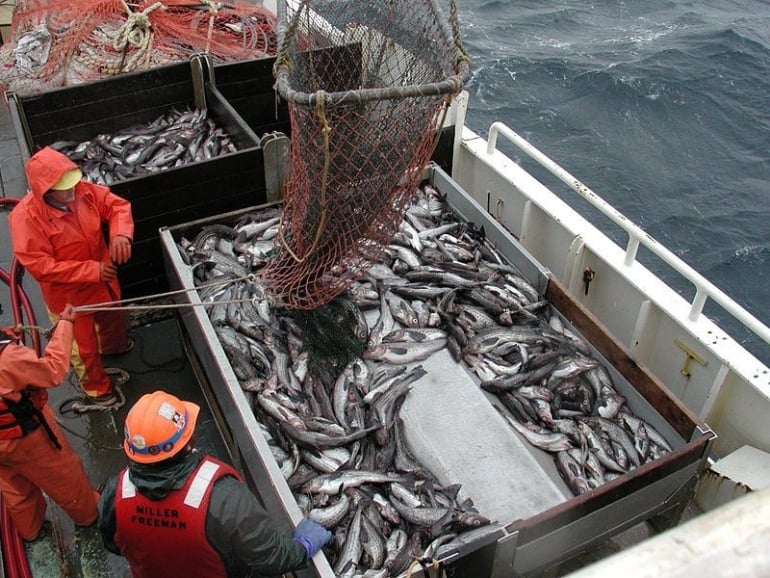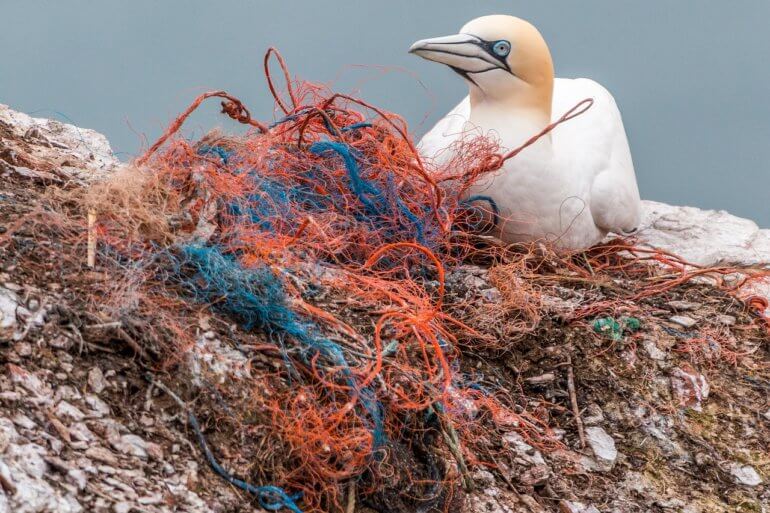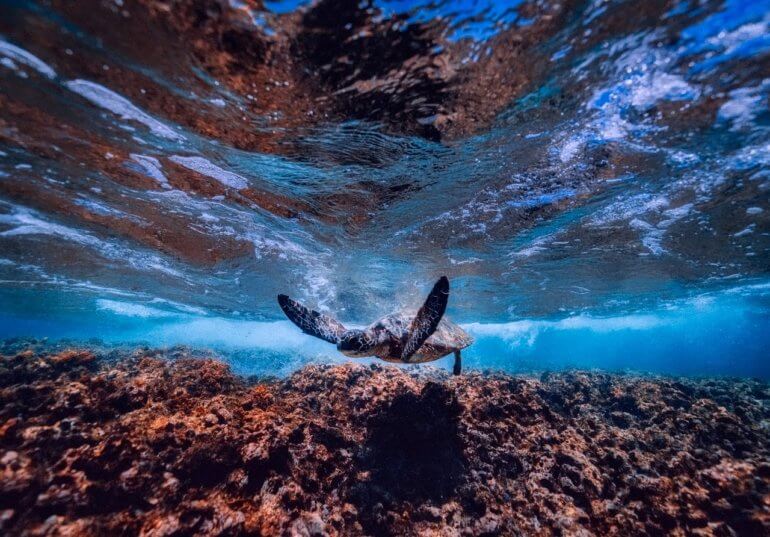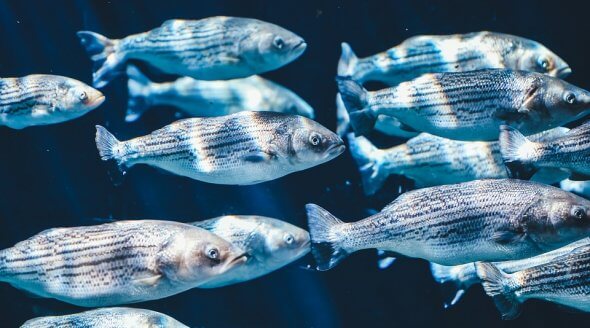The World’s Biggest Killer: Fishing
Commercial fishing is one of the greatest threats to marine environments and causes extreme suffering to fish and other sea animals. It has contributed to an increase in the number of whales, dolphins, and porpoises dying on UK beaches, which was 15% higher between 2011 and 2017 than in the previous seven years.
Every year, humans drag billions of fish out of the ocean in painful, frightening, and gruesome ways.
Even though fish and other sea animals are capable of feeling pain and suffering, they’re usually killed with absolutely no regard for their welfare. When pulled from the ocean’s depths, they undergo excruciating decompression – the internal pressure causes their swim bladders to rupture, pops their eyes out of their heads, and pushes their stomachs out through their mouths. Many slowly suffocate on fishing vessels, while others are still alive and thrashing when their throats and bellies are slit open.
Crustaceans also feel pain and suffer when they’re mutilated and boiled alive after being taken from their ocean homes.
“Non-target” marine animals don’t have it any easier. An estimated 300,000 cetaceans (whales, dolphins, and porpoises) are killed every year as “by-catch” after becoming entangled in fishing nets, while turtles, seals, birds, and non-target fish – some of which are protected species – also die of injuries caused by nets and other tackle.
Seals are supposed to be protected under UK law, but salmon farmers in Scotland can get a special licence that makes it legal for them to shoot and kill these animals, who are just trying to feed themselves and their families in order to survive. Since 2011, 800 seals have been killed by sharpshooters working for Scottish fish farmers.
While single-use plastics such as bags, straws, and other pieces of litter do cause pollution, it’s actually abandoned or discarded fishing gear that a recent report named “the most harmful form of marine debris for animals”. This equipment – also known as “ghost gear” – mutilates and kills millions of sea animals every year.
And the fishing industry’s environmental destruction doesn’t stop there: massive trawlers with nets the size of football pitches sweep the seabed, destroying coral and marine plants and scooping up everything – and everyone – in their path.
An estimated 90 per cent of the world’s oceans are fully exploited, and at this rate, there really won’t always be plenty more fish in the sea. However, our choices could turn the tide. By leaving fish off our plates, we can save the lives of countless animals and take a stand against an environmentally destructive global industry that harms millions of sentient beings every day.
To take action to protect our oceans, order our free vegan starter kit, which is packed full of recipes, tips, and advice, including information on plant-based nutrition and ideas for quick and tasty vegan meals. You can also check out our guide to the vegan fish products available in the UK that will give you that “fishy” taste without harming any animals. Win-win!









